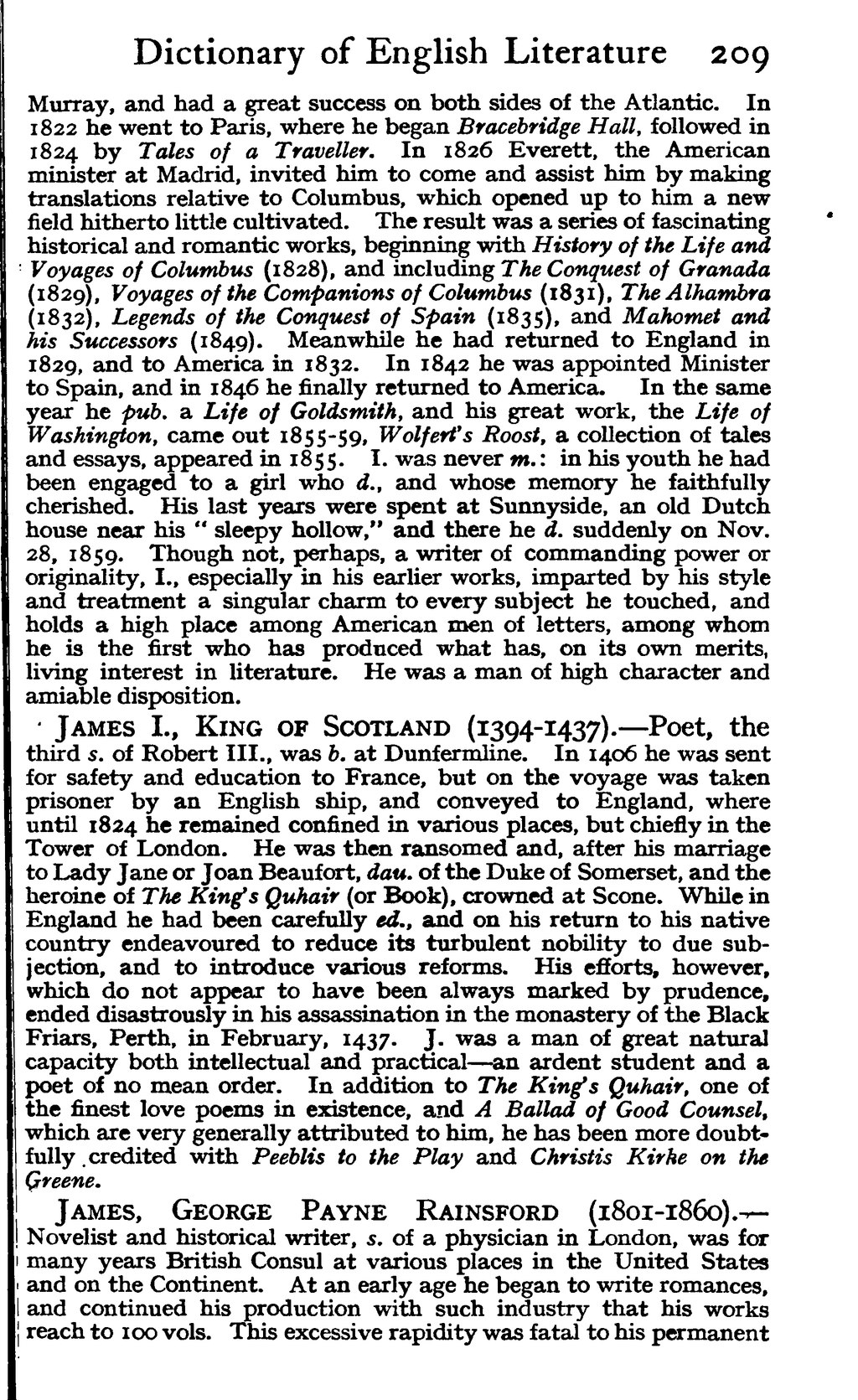Murray, and had a great success on both sides of the Atlantic. In 1822 he went to Paris, where he began Bracebridge Hall, followed in 1824 by Tales of a Traveller. In 1826 Everett, the American minister at Madrid, invited him to come and assist him by making translations relative to Columbus, which opened up to him a new field hitherto little cultivated. The result was a series of fascinating historical and romantic works, beginning with History of the Life and Voyages of Columbus (1828), and including The Conquest of Granada (1829), Voyages of the Companions of Columbus (1831), The Alhambra (1832), Legends of the Conquest of Spain (1835), and Mahomet and his Successors (1849). Meanwhile he had returned to England in 1829, and to America in 1832. In 1842 he was appointed Minister to Spain, and in 1846 he finally returned to America. In the same year he pub. a Life of Goldsmith, and his great work, the Life of Washington, came out 1855-59, Wolfert's Roost, a collection of tales and essays, appeared in 1855. I. was never m.: in his youth he had been engaged to a girl who d., and whose memory he faithfully cherished. His last years were spent at Sunnyside, an old Dutch house near his "sleepy hollow," and there he d. suddenly on Nov. 28, 1859. Though not, perhaps, a writer of commanding power or originality, I., especially in his earlier works, imparted by his style and treatment a singular charm to every subject he touched, and holds a high place among American men of letters, among whom he is the first who has produced what has, on its own merits, living interest in literature. He was a man of high character and amiable disposition.
James I., King of Scotland (1394-1437).—Poet, the third s. of Robert III., was b. at Dunfermline. In 1406 he was sent for safety and education to France, but on the voyage was taken prisoner by an English ship, and conveyed to England, where until 1824 he remained confined in various places, but chiefly in the Tower of London. He was then ransomed and, after his marriage to Lady Jane or Joan Beaufort, dau. of the Duke of Somerset, and the heroine of The King's Quhair (or Book), crowned at Scone. While in England he had been carefully ed., and on his return to his native country endeavoured to reduce its turbulent nobility to due subjection, and to introduce various reforms. His efforts, however, which do not appear to have been always marked by prudence, ended disastrously in his assassination in the monastery of the Black Friars, Perth, in February, 1437. J. was a man of great natural capacity both intellectual and practical—an ardent student and a poet of no mean order. In addition to The King's Quhair, one of the finest love poems in existence, and A Ballad of Good Counsel, which are very generally attributed to him, he has been more doubtfully credited with Peeblis to the Play and Christis Kirke on the Greene.
James, George Payne Rainsford (1801-1860).—Novelist and historical writer, s. of a physician in London, was for many years British Consul at various places in the United States and on the Continent. At an early age he began to write romances, and continued his production with such industry that his works reach to 100 vols. This excessive rapidity was fatal to his permanent
